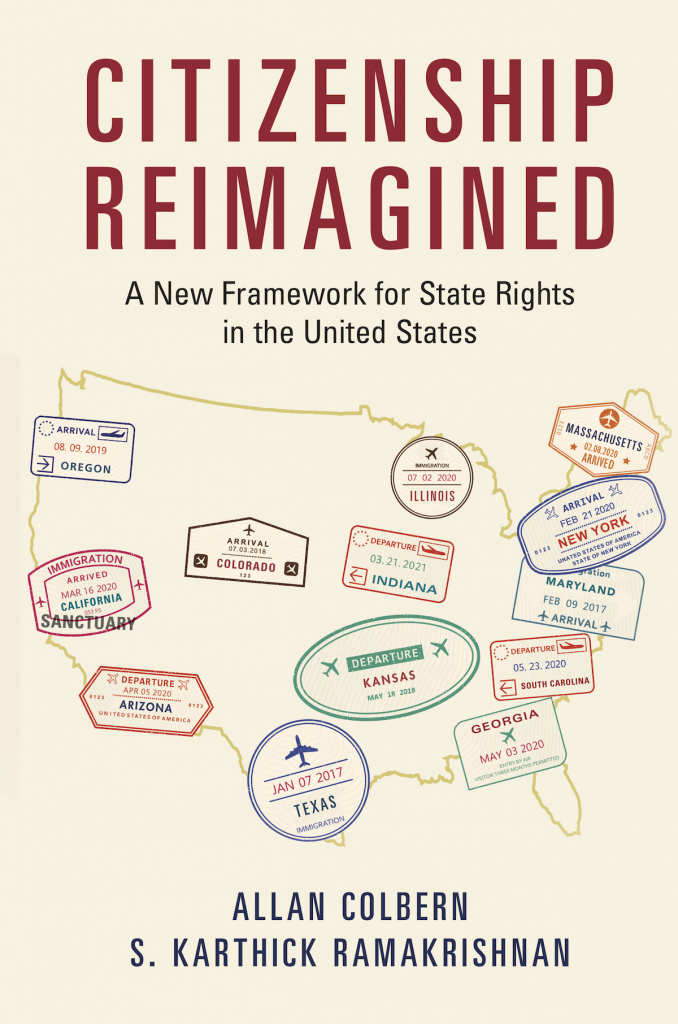Buy the Book
Skylight Books | Powell’s Books
Vroman’s | Amazon | Google Books
Summary
The United States is entering a new era of progressive state citizenship, with California leading the way. A growing number of states are providing expanded rights to undocumented immigrants that challenge conventional understandings of citizenship as binary, unidimensional, and exclusively national.
In Citizenship Reimagined, Allan Colbern and S. Karthick Ramakrishnan develop a precise framework for understanding and measuring citizenship as expansive, multi-dimensional, and federated – broader than legal status and firmly grounded in the provision of rights. Placing today’s immigration battles in historical context, they show that today’s progressive state citizenship is not unprecedented: US states have been leaders in rights expansion since America’s founding, including over the fight for black citizenship and women’s suffrage. The book invites readers to rethink how American federalism relates to minority rights and how state laws regulating undocumented residents can coexist with federal exclusivity over immigration law.
In particular, the book
- Establishes a precise rights-based framework for multidimensional citizenship, drawing insights from comparative politics and mapping indicators for future empirical work
- Provides a novel formulation of rights, including the right to develop human capital, right to free movement, and the right to identify and belong
- Traces the intersection between citizenship and federalism throughout US history, explaining how social movements, parties, and courts have interacted within the context of federalism to shape the contours of citizenship rights over time
- Offers a vision for progressive state citizenship that will interest policy makers and activists and is relevant to understand immigrant rights as well as other group rights
